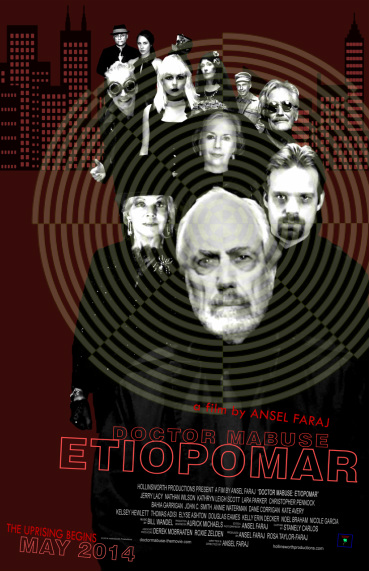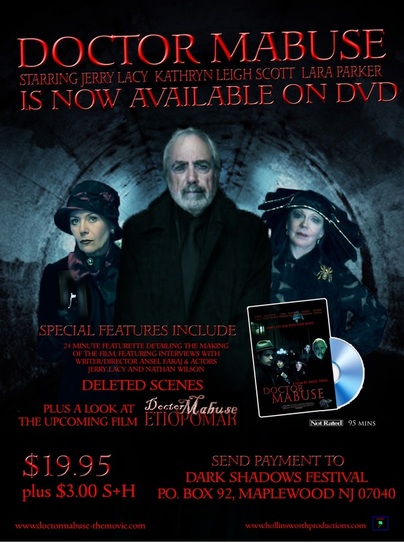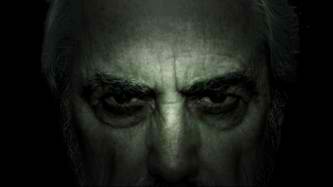The Resurrection of Dr. Mabuse, Part Two

 Less than six months ago, I reviewed indie wunderkind Ansel Faraj’s 21st Century update of Dr. Mabuse. The Rondo-nominated film garnered more attention from genre fans for Faraj’s stunt casting of veterans of the 1960s Gothic soap opera Dark Shadows than it did for his faithful recreation of Expressionism in the digital age of indie filmmaking.
Less than six months ago, I reviewed indie wunderkind Ansel Faraj’s 21st Century update of Dr. Mabuse. The Rondo-nominated film garnered more attention from genre fans for Faraj’s stunt casting of veterans of the 1960s Gothic soap opera Dark Shadows than it did for his faithful recreation of Expressionism in the digital age of indie filmmaking.
I won’t claim Faraj is the equal of Fritz Lang or that his Hollinsworth Productions offers the resources of UFA at its peak, but this is a young man who impresses in spite of the limitations of budget and time. There is a dreamlike quality to his work which is helped rather than hindered by the Spartan production values. One wonders just what he would be capable of rendering given studio backing.
Faraj’s latest production, Etiopomar, is the second half of his Dr. Mabuse reboot and deftly blends elements of Norbert Jacques’s original novel that Fritz Lang and his screenwriter wife Thea Von Harbou jettisoned from their 5-hour two-part adaptation of the book in 1922, while incorporating characters from Lang and Von Harbou’s Metropolis (1927). When one considers Lang’s silent masterpieces, the visionary Metropolis easily supersedes his Mabuse pictures. Metropolis is a stunning sci-fi epic that is still influential nearly 90 years on.
